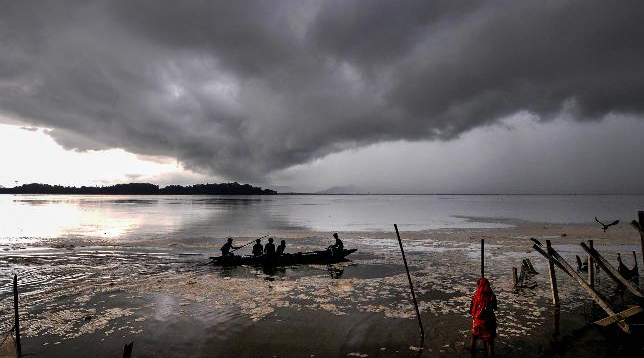Although the initial showers of rain have brought a welcoming change from the summer heat that has engulfed our country, it is important to remember to prepare for the dangers that come with the monsoon season. With the monsoons, come a variety of scenarios from storms to floods. Stay one step ahead by arming yourself with the necessary precautions. Find a few tips below that will allow you to better prepare for the monsoon season and any risks that come with it:
Stay Prepared–
Keep a watch on the weather forecast to be prepared for the upcoming conditions in and around your area. In the modern era of gadgets and apps, it is not necessary to keep a track via the TV or radio. Set your location on your smartphone and get regular weather updates by the hour.
Heed Announcements –
The government is prompt to issue warnings via television news and radio alerts. Keep a track of their updates on flooded areas, broken roads, closed roads, oil-spills etc. Police authorities, Fire Brigades, Ambulance services and other emergency services are here to serve you. Heed their dictates in case of casualties.
Keep a First Aid kit with you at all times –
Every household should at the very least prepare themselves with a first aid kit that will help combat common injuries and emergencies. Store the kits in the house and in your home vehicle. Your medical kit should include dressing bandage, roller gauze in assorted sizes, cotton balls and cotton-tipped swabs, antibiotic ointment, antiseptic solution, bandage, antibiotic tablet, anti-allergen tablet, tissues, energy bar and a first aid manual. Stock up on flashlights and extra batteries as well in your car and home. Keep a heavy spanner or a small crowbar in the car glow box to break the glass of your window, in case the door gets jammed.
Keep Contamination at bay –
The monsoon makes for the perfect breeding ground for germs and bacteria which in turn lead to water-borne diseases that affect a number of people. Multiple monsoon-related illnesses like Cholera, Malaria, Hypothermia, Diarrhoea, Dengue Fever, Respiratory Tract Infections, and Chikungunya are some of the more common diseases that infect individuals. Stay safe by drinking water that has been boiled, filtered and purified with ultraviolet purifiers. In addition to this, expunge stagnant water that has accumulated near the house in containers like flower pots, coolers, cans, etc. to keep mosquitoes and other insects away.
Precautionary measures in case of floods –
If living in a flood-prone area have an evacuation plan handy. Contact an insurance agent to discuss flood insurance coverage. Avoid low-water crossings and seek high ground that is safe from the flooding. Refrain from maneuvering vehicles in the event of a rising flood.
Remember these dont’s
- Do not handle fallen or low-hanging wires and stay safe from being electrocuted.
- Do not speed drive through water, as it can cause the car to hydroplane. Slow down or stop at the side of the road till the water level subsides a little
- Refrain from travelling late at night as it is difficult to spot deep, water covered puddles and holes in the dark.
- In case you come across a road accident, call on the 108 Emergency Response Service Helpline for immediate assistance to save a life.
Always remember that ‘Prevention is better than cure’ in the event of a natural calamity. Planning ahead will minimize and possibly avert damages done. Stay conscious and attentive to the weather and its impact on the surroundings to avoid disasters.


